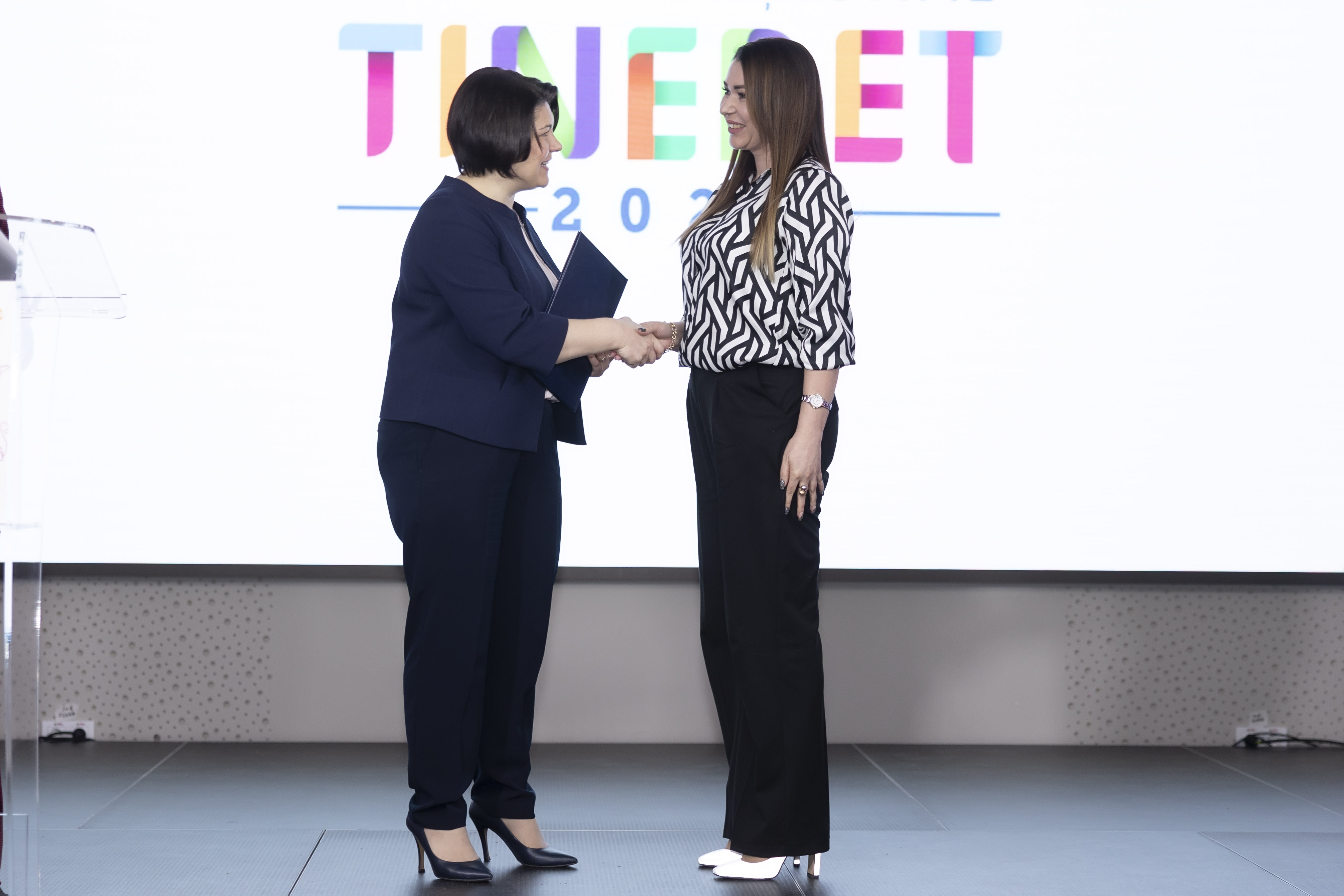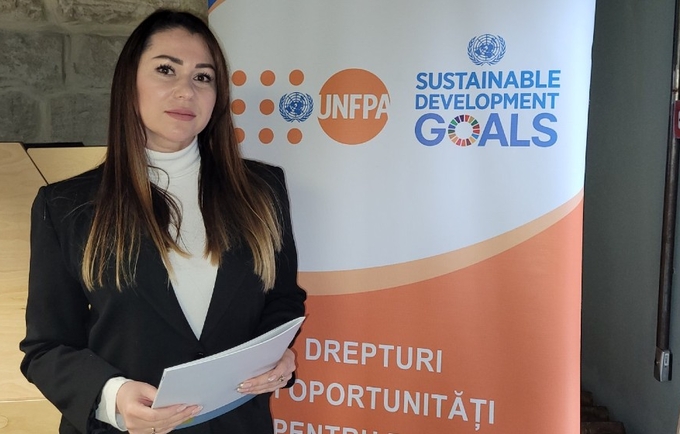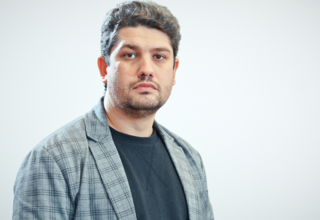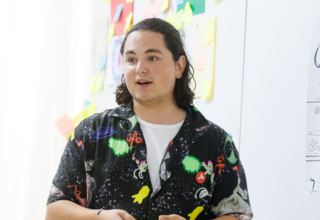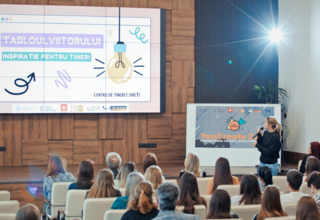Ludmila Blaj is a civil servant who is helping young people in Bălți unlock their potential and engage actively in community life. For almost four years, she has held the position of Senior Youth Specialist at the Municipal Division for Education, Youth and Sport. Since then, Ludmila has managed to support the local implementation of several national youth policies. All her initiatives are extensively consulted with the Youth Centres across the municipality and the suburbs, with the NGO sector and with the direct beneficiaries – the young people.
One of the first steps was the signing of an agreement between Bălți City Hall/Bălți Municipal Council and the Ministry of Education and Research (MER), an agreement that, according to Ludmila Blaj, creates more opportunities for the development of the youth sector and youth programs, as well as for the further development of Youth Centres as platforms for running local youth programs. A number of initiatives for the young people subsequently ensued from this agreement. Thanks to it, young people from Bălți were able to participate for the second year in a row in the program of grants for local youth initiatives: MDL 50,000 were allocated by MER, and another MDL 50,000 – by local public authorities.
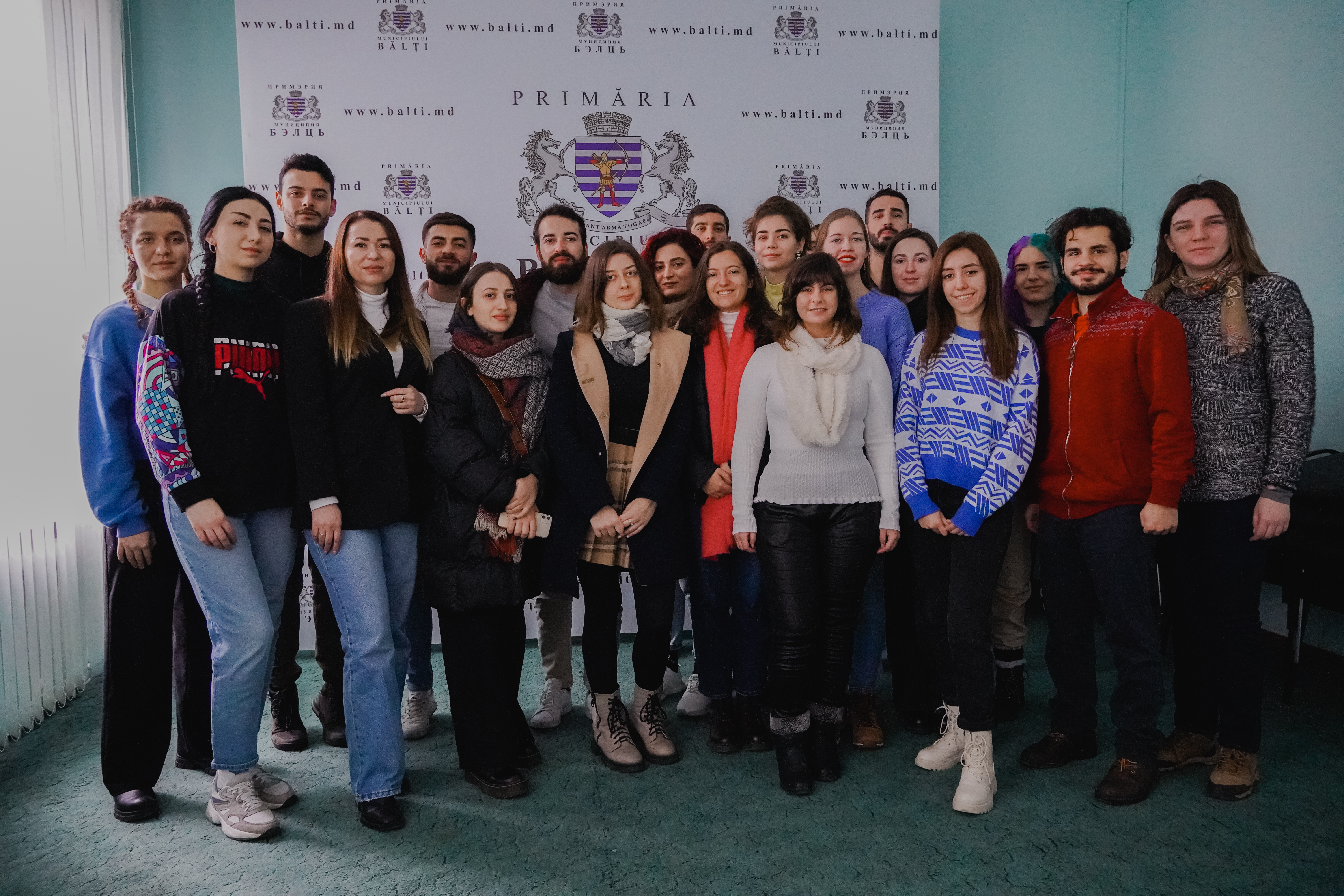
A First for Bălți – a Local Youth Strategy and a Municipal Youth Council
Another achievement is the first-ever establishment of the Municipal Youth Council – a direct form of youth participation and engagement in community development. ‘The structure was set up in 2021/2022 and it includes 35 young men and women. It is supposed to be a form of association where young people can express their opinions and carry out their own projects that address their needs and interests, but also to contribute to solving the problems that people in the community are facing’ Ludmila Blaj explained.
In Bălți, the opinion of young people is consulted whenever decisions that affect them directly and indirectly are taken. Participative work is currently underway to develop the local/municipal youth plan for the coming years.
‘There are several stakeholders in this process: youth centers across the region, students from mainstream schools, colleges, vocational schools, students from the “Alecu Russo” State University too, as well as representatives of civil society organisations and of other relevant entities. Young people’s feedback is also sought at the different stages of plan implementation. Young people can give their opinion on what they liked, what activities youth centres should do in a different way, and what should be dropped because of lack of sufficient effectiveness’, the specialist said.
The program is carried out in partnership with the PRO BONO Information and Resource Centre, through which UNFPA Moldova seeks to support 10 District/Municipal Councils in the development of results-oriented and data-driven Local Youth Action Plans for 2023 based on the situation of young people at district level. UNFPA, alongside Moldova’s trusted youth partners – the Ministry of Education and Research and the Government of Switzerland – supports the civic engagement of young people so that they have the opportunity to be active and involved in community development.
Another important document currently being worked on is the Municipal Youth Strategy, which is the first to be drafted in Bălți, on the basis of the National Youth Strategy.
One of the priorities is developing youth centres, equipping them and supporting their programs
Ludmila believes that for young people to engage actively in community life and in solving their own problems, they need to be prepared, given the necessary resources and opportunities. Thus, her work focuses on building the capacity of the local Youth Centres, which are visited monthly by hundreds of pupils and students.
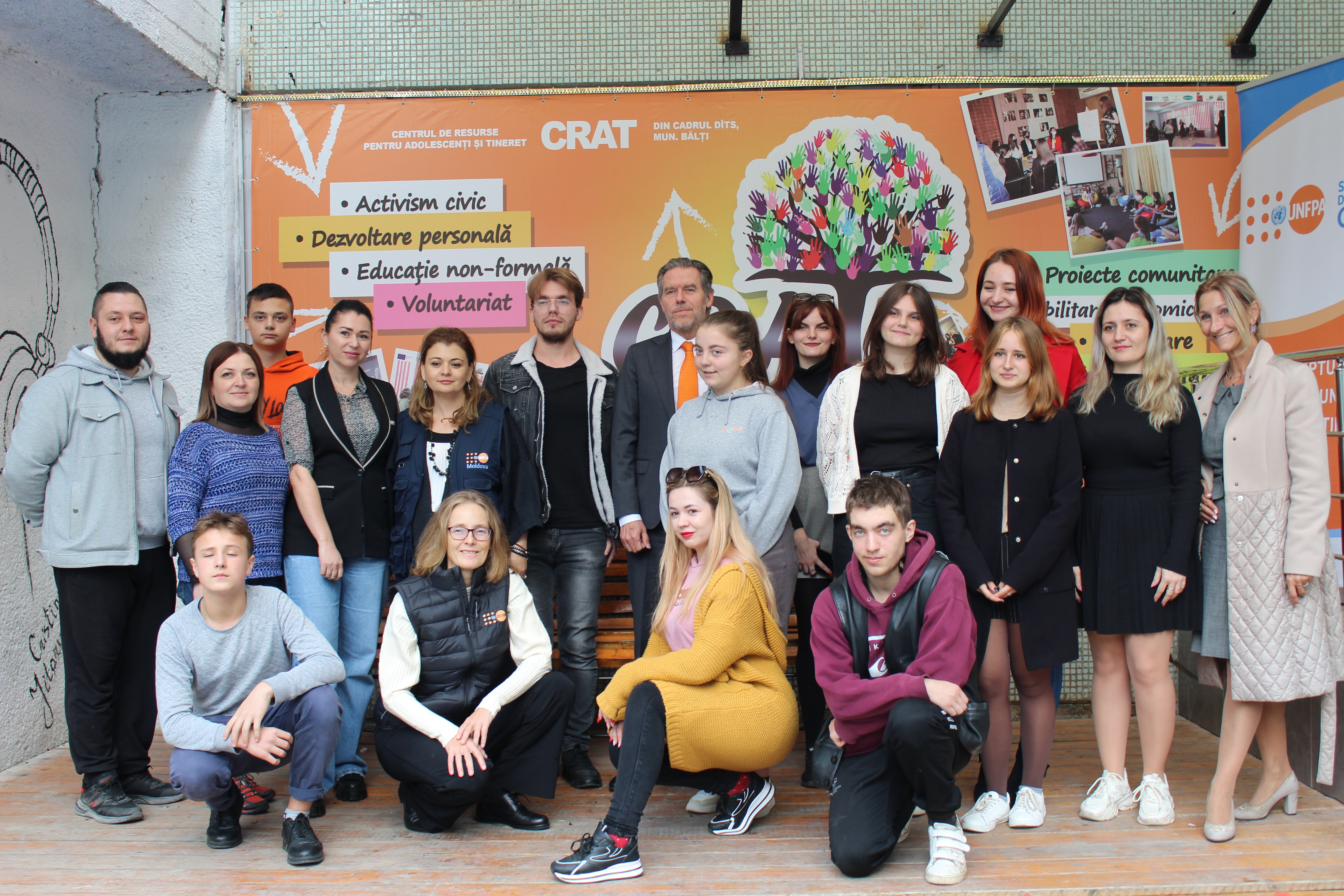
One of such institutions is the Resource Centre for Youth and Adolescents (RCYA), part of the Youth Centres Network of Moldova, a network developed by UNFPA Moldova together with the Ministry of Education and Research and the Swiss Cooperation Office. Youth Centre visitors have the possibility to attend personal development trainings on public speaking, effective communication, time management, as well as career guidance, financial education and other areas of interest. More than 250 beneficiaries, including young refugees from Ukraine, participate in the Centre’s activities every month.
With financial support from UNFPA together with the Swiss Cooperation Office and the Ministry of Education and Research, the Youth Centre has been made accessible for people with disabilities. The premises were fitted with a ramp, wider doors to allow access for wheelchair users and tactile paving to assist people who are vision impaired.
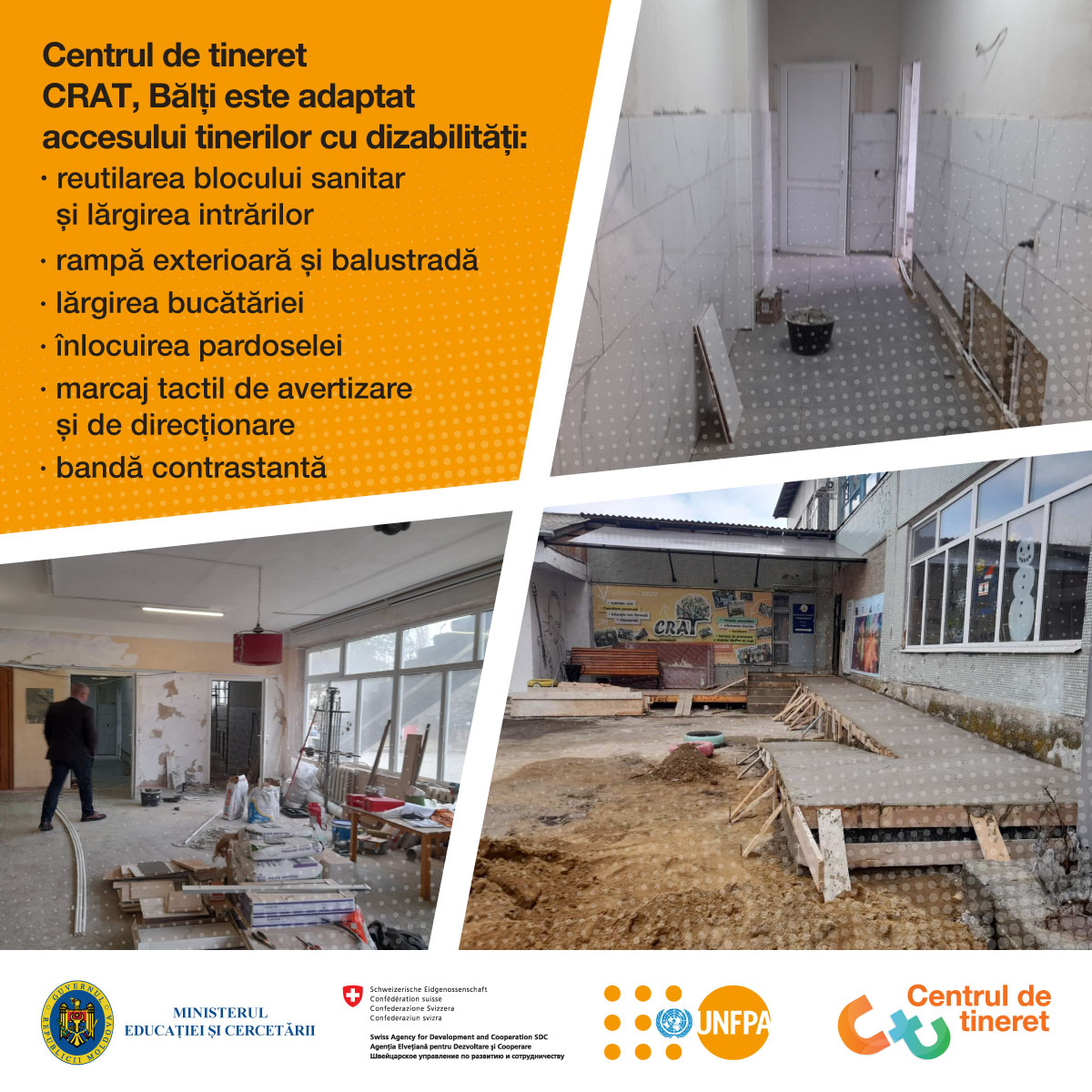
Nonna Mihalcean, manager of the Resource Centre for Youth and Adolescents (RCYA), said that close cooperation with the Division of Education, Youth and Sport helps achieve the youth-related objectives:
‘Ludmila Blaj is committed to policy-making, coordination of the work of the Division of Education, Youth and Sport, and we – as the Youth Centre – are the ones working to implement these policies locally. We managed to successfully achieve the strategic objectives at municipal level.’
In the context of developing the local youth strategy, Nonna Mihalceanu is eager to increase the number of RCYA employees, as it currently has only six. This would contribute directly to increasing the quality and number of services for young people. Also, thanks to direct efforts of the Division of Education, Youth and Sport, the Centre has obtained an additional space – an adjoining building, to be renovated and used to expand and multiply services. ‘By doing this, we expect to have not 60, but 160 young people coming every day to the Centre to engage in its activities’.
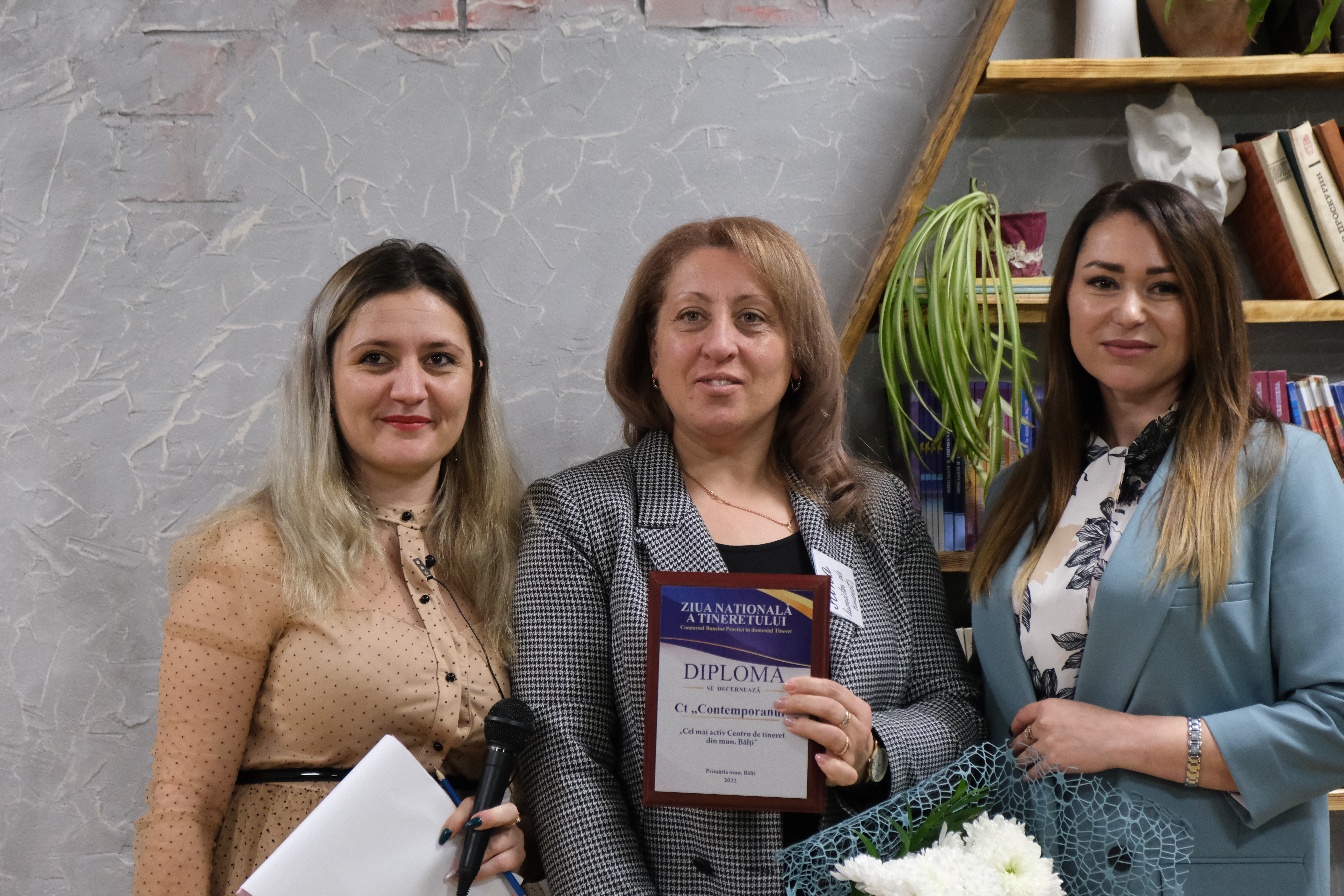
Ludmila Blaj also would like to see more young people participating, which is a priority for the Division:
‘We need to invest more in young people, including in specific areas such as media education, for example. The young people of today are different from previous generations in that they are more creative, know how to apply for projects, learn quickly and are more tech-savvy’, Ludmila Blaj added.
Although she faces multiple challenges, Ludmila says that working with youth is her passion and she intends to continue her work in this area for the coming years.
‘By involving young people in activities meant to make them thrive, while keeping them away from unhealthy behaviours, they can become responsible adults, which will contribute to community development. This is because when young people are empowered and given the right opportunities, they become effective drivers of change’, she explained.
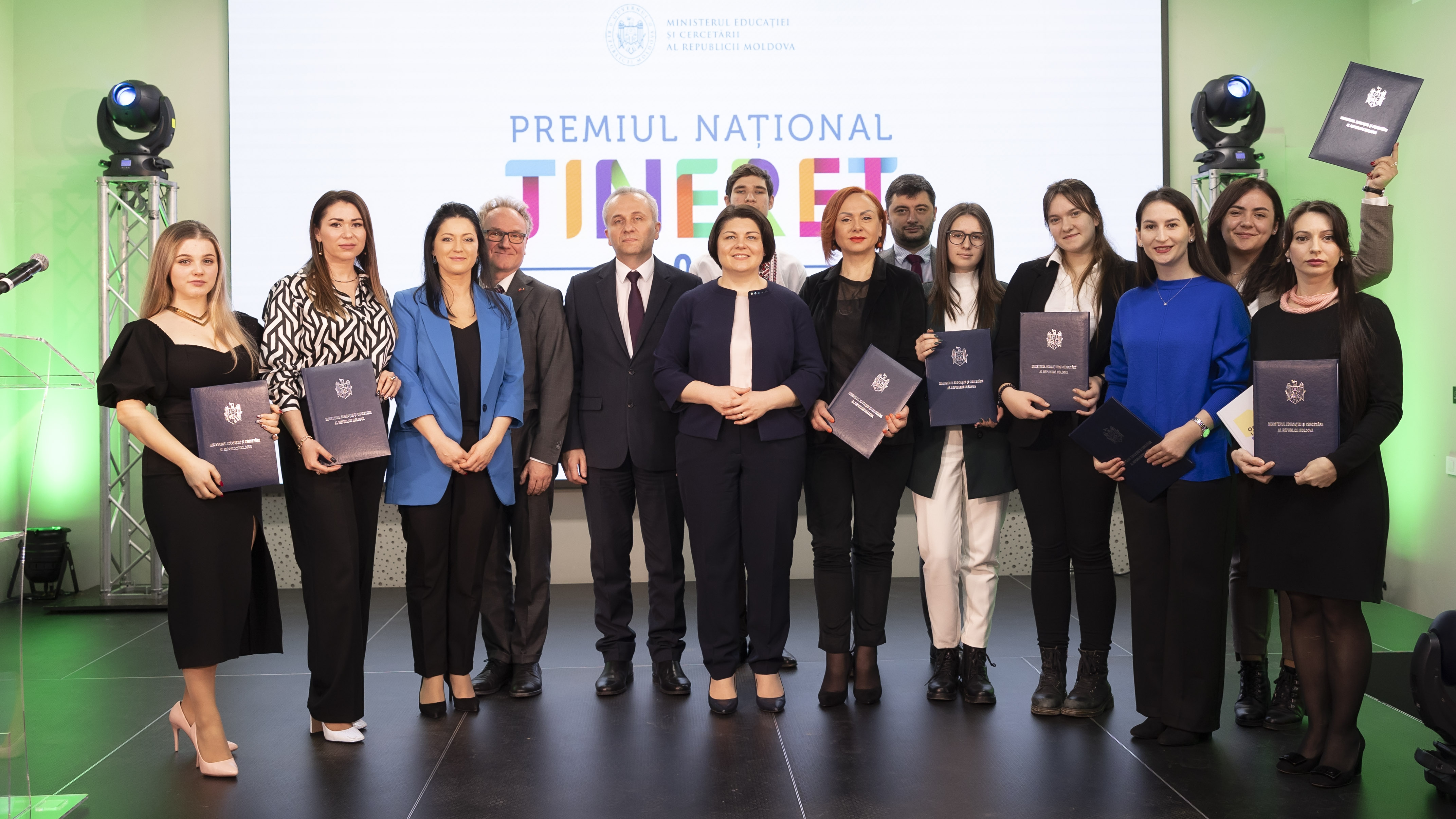
It worth to be mentioned, that the Ministry of Education and Research designated Ludmila Blaj as the winner of the 2022 National Youth Award, as the "Youth Specialist of the Year within Level II Local Public Administration Authorities".
